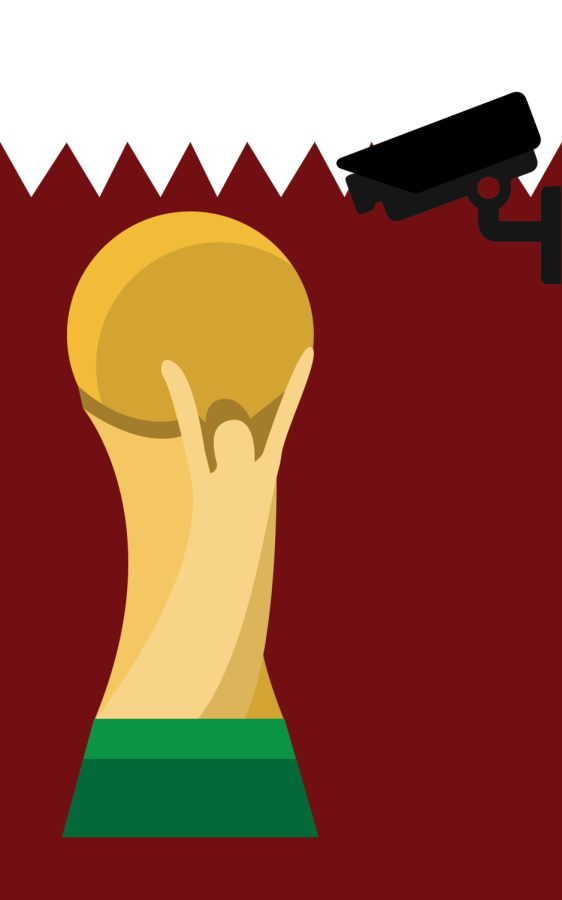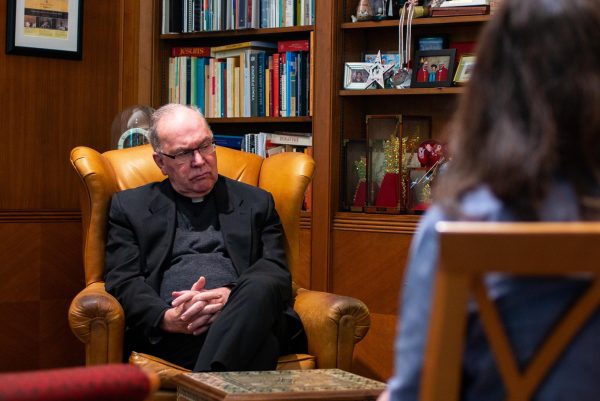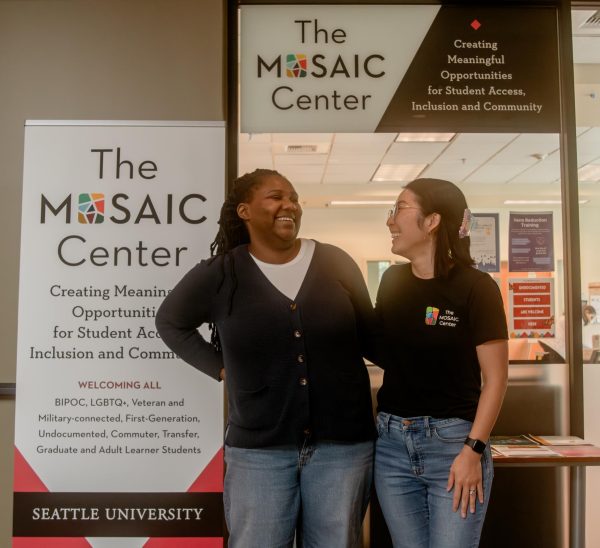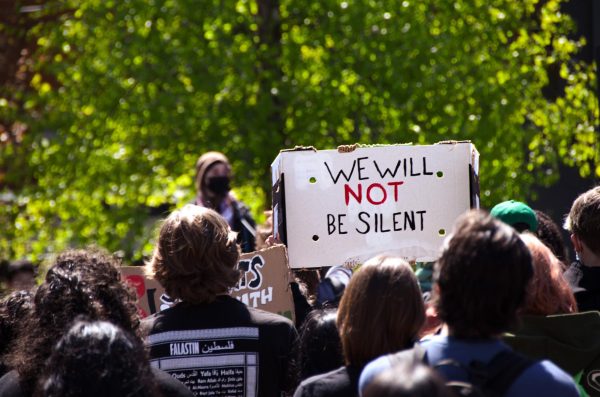World Cup Controversy: Should Qatar Have Been Given the Big Stage?
12 years ago, the International Federation of Association Football (FIFA) shocked the world by awarding Qatar the hosting rights to the 2022 World Cup. Before this year, Qatar had never appeared in a World Cup tournament. The nation won the bid for host despite the concerns surrounding the lack of infrastructure necessary to host the tournament.
After announcing which country would host the 2022 tournament, FIFA found itself engulfed in numerous scandals including alleged bribes to make Qatar, a country with recent oil wealth, the host nation. They also faced allegations of worker mistreatment in the rush to create seven new stadiums, a subway system and expansions in its commercial and residential spaces for the World Cup in addition to pre-existing human rights concerns surrounding women’s rights, LGBTQ+ rights and freedom of expression.
The 24-person FIFA Executive Committee, which votes on which country hosts the competition, voted for Qatar in 2010. According to the Washington Post, two members of the committee were suspended before the vote took place after being caught offering their votes in exchange for money. Sepp Blatter, the FIFA president at the time, resigned and was acquitted of fraud in July 2021. Blatter recently admitted regretting allowing Qatar to host the World Cup. Two years ago, the U.S. Department of Justice accused three media executives and one marketing company of fraud and money laundering. They also released information about money given to five people in the FIFA Executive Committee to vote for Russia or Qatar. Qatar has since denied these claims.
In order to execute hosting the World Cup, Qatar had to create the infrastructure to support it that consisted of stadiums, a subway system, airport expansions, new residential buildings and hotels. To complete these developments, Qatar relied heavily on migrant workers. Since 2010, workers have reported unsafe working conditions during the construction of the new stadiums and other facilities. Amnesty International, an international human rights organization, reported use of forced labor in Qatar in 2016. Workers have shared accounts of wage theft, unhygienic living conditions and uncontrolled working hours. Qatar denied claims about substandard workers’ conditions.
Thomas Antkowiak, law professor at Seattle University, explained that workers have limited rights, including the ability to change jobs.
“There’s a tremendous power imbalance between employers and workers. There’s little power if you’re an employee, because your rights are being infringed upon, and there’s not really a way to get some sort of remedy,” Antkowiak said.
After Qatar was awarded the host position they started building the necessary infrastructure. The nation has faced an increasing number of deaths due to poor working conditions as a result of preparing for the tournament. Antkowiak recognizes the rights of migrant workers as a primary concern.
“They have very limited rights, and thousands have died in Qatar while working on projects. The thing is we don’t know all the circumstances because those deaths haven’t been sufficiently investigated,” Antkowiak said.
While it is unclear how many individuals have passed, of the 30,000 foreign laborers hired to build the stadiums, reports say that 6,500 migrant workers have died since the 2010 decision. The government of Qatar claimed these deaths were unrelated to the World Cup, however, the International Labor Organization (ILO) believes Qatar has underestimated the death count. The ILO believes that respiratory causes have not been counted as work-related deaths despite these issues often resulting from heatstroke, which is common when laboring in hot places like Qatar.
First-year Business major Aidan Donahue believes the migrant workers are treated unfairly under the circumstances in Qatar.
“I feel like the violations against migrant workers are the worst of them. They don’t have adequate living conditions and they aren’t getting paid enough for the dangerous work they do,” Donahue said. “The Qatari government’s support of discrimination based on sexual orientation or nationality is also something I view they should be able to make more progress on than they are. The lack of free speech is also disconcerting.”
To regulate migrant workers’ conditions, Qatar uses the Kafala system, which sponsors foreign workers but prevents them from leaving their jobs after arriving in the country. Since 2010, migrant workers have endured hot weather, withheld wages and confiscated personal documents. History Professor Nova Robinson recognized the harshness associated with the Kafala system, particularly in the case of Qatar’s hosting of the World Cup.
“[It’s] a system where passports are confiscated and workers are abused to and from work sites,” Robinson said.
Qatar has since passed reforms to the Kafala system, but it still remains in place. In 2020, The Human Rights Watch reported that migrant workers would be able to leave their jobs or the country without employer permission or before their contract ends, thanks to the recent reforms.
While changes are being made in how Qatar treats workers, some have found it difficult to report on this topic due to the restrictions put in place on freedom of speech by Qatar. Antkowiak believes that having the World Cup’s international spotlight may result in pressure on Qatar’s government, which could possibly expose more instances of abuse.
“I’ve heard that there were Norwegian journalists that were detained and had their equipment confiscated when they were trying to interview migrant workers. There’s lots of limitations of freedom of expression and freedom of the press in Qatar,” Antkowiak said.
Qatari law criminalizes publishing biased or false statements, propaganda or broadcasting pieces with the intent to harm national interests, infringe on the social system or disrupt public opinion. Action against the law may result in imprisonment up to five years or fines of 100,000 Qatari riyals.
FIFA has stood with Qatar on this issue, stopping protest attempts from across the international community. The Denmark national team requested to wear training jerseys with the words “human rights for all” on them, FIFA denied the request, citing technical reasons. FIFA also blocked Germany from wearing armbands in support of LGBTQ+ rights. One of FIFA’s rules surrounding equipment bans political, religious and personal slogans, statements and images.
While FIFA makes efforts to quiet protesting, various teams have argued the necessity in understanding the human rights abuses happening across the world. First-year Computer Science major Abdul Albounni emphasized that FIFA’s regulations are not going unnoticed.
“I won’t deny that there was abuse, we know that abuses like that happened during previous World Cups (2018 specifically) and nobody really cared, and FIFA has always been corrupt, having been bribed by previous countries too,” Albounni said. “Of course, it’s wrong, but it’s important to notice that. I don’t want to deny the abuse that I know for sure happened, but I think it’s important to highlight western hypocrisy.”
Fourth-year Environmental Studies and Public Affairs double major Zak Smith is the co-president of Seattle U’s Men’s Club Soccer. For him, watching the World Cup this year has made him recognize issues within the governing organization of FIFA.
“I think Qatar and their actions are not justifiable but the serious problem when it comes to the World Cup in general is FIFA. They’re a terrible and corrupt organization on many levels. But it’s not like I’m not going to watch the World Cup and they know that, so the real challenge is to make FIFA better, which I hope can happen,” Smith said. “Every country has human rights violations though and the U.S. is no exception to that.”
Despite the restrictions on speech in Qatar, participating nations have attempted to respond to the host country and FIFA’s expectations of the tournament. The Danish National team wore faded logos on their jerseys to protest worker treatment; the Australian National Team posted a video protesting worker and LGBTQ+ treatment; Germany’s players covered their mouths in a posed photo before their opening match in response to FIFA’s restrictions on armbands that protest discrimination.
Amidst the protests and their blocks, Robinson feels encouraged that Qatar’s human rights violations are getting acknowledgement through players speaking out.
“I think it’s wonderful that players are bringing attention to it, and I think it’s disgraceful that FIFA has encouraged players and teams to be quiet about it. It shows a lot about their priorities,” Robinson said.
In between the crossfire of media attention and protests, the World Cup is continuing with the elimination rounds kicking off this week. But concerns about Qatar and FIFA are unlikely to be quieted as the competition ramps up. World Cup viewers will be tuning in not only for soccer but also to view the latest political, moral or personal protests at the world’s premier international event.
Copy & Investigative Editor Kali Herbst Minino contributed to this article.











